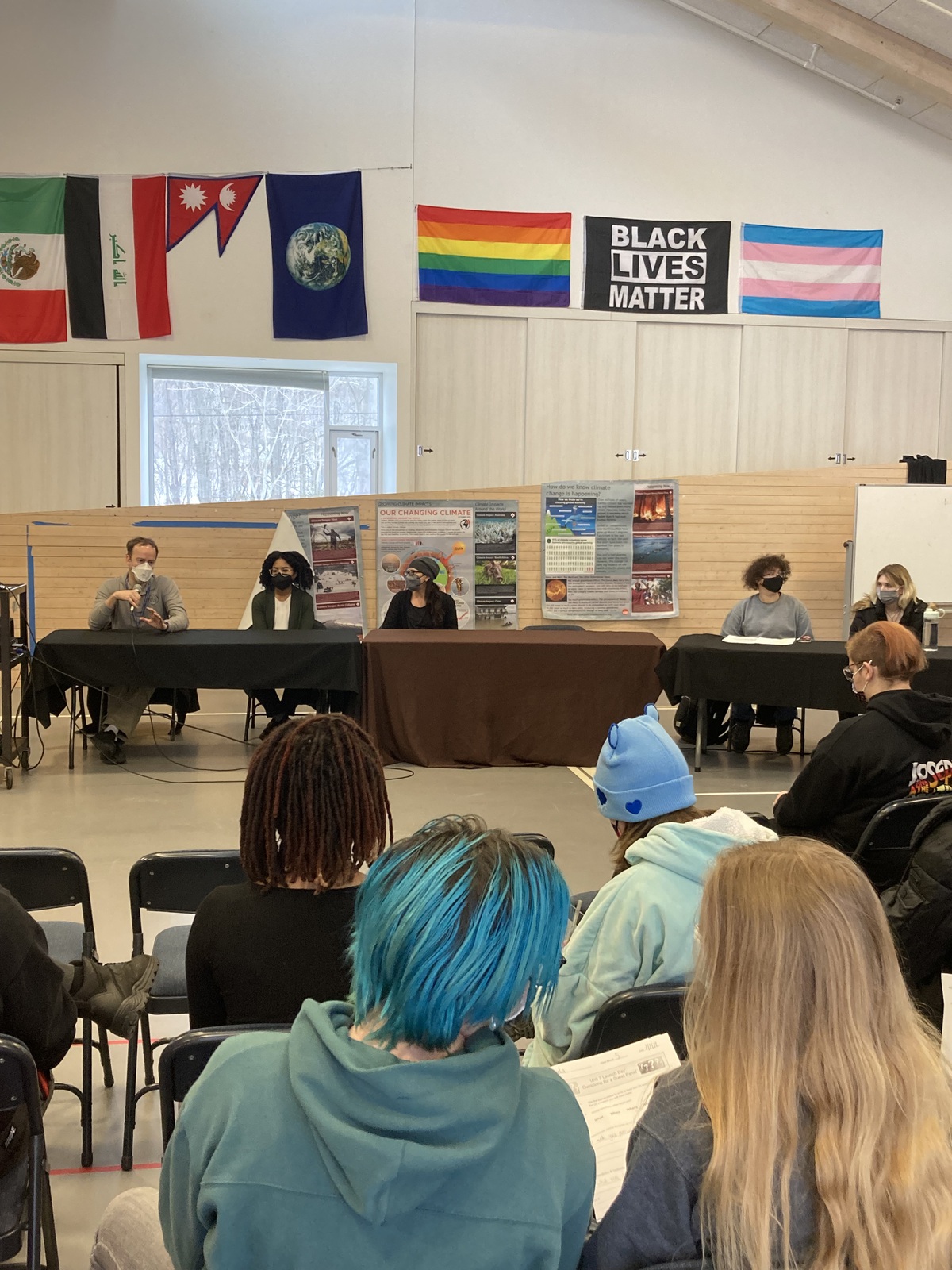Nation’s longest-running environmental charter school breaks new ground in climate education
Students at Common Ground High School learn to change climate for the better

Courtesy of Joel Tolman
The 10th-grade curriculum at Common Ground Charter High School in New Haven, Connecticut is anything but common.
Students in Rebecca Van Tassell’s 10th-grade Environmental Science class are making electric-powered cars — researching materials and turning in their sketched designs by the end of class. They describe their plans, which will repurpose materials from their homes. One student’s car will use CD-ROM disks for wheels, while another car will be fashioned from a hot glue gun. Student Jackelian Brown will draw pieces on cardboard, then assemble them and paint on headlights to make her car. Her classmate Jayden Carty considers where to place his battery — on the top or bottom of the chassis. A student nearby said that they will “draw stuff and make it work.”
“Having [students] think about how these large-scale changes that we see really come down to the individual properties of molecules, that’s the cool science stuff that I get excited about,” Van Tassell said. “We can take steps to make things better for people and to work towards justice in the way that we approach climate change. So I’m hoping that they learn a little science and they come away feeling like there’s some sense of hope.”
Next period, the 10th-graders will attend Dan Jordan’s English class to learn how they can use storytelling to educate people about climate change. This is a typical afternoon for students at Common Ground, the nation’s longest-running charter school dedicated to the environment and social justice.
The materials for the electricity-powered car project come from Engineering Tomorrow, a nonprofit that promotes engineering education in schools and advocates for diversity in the field. As the students plan their designs, Van Tassell reminds them about the principles of electricity, making sure that they have metal on metal connections and remember that electricity has to flow through a conductor.
“I can tell how to better use solar panels,” Sylvia Cruz, a student in Van Tassell’s environmental science class, said. “I feel like this could help with climate change, since I haven’t burned fossil fuels and caused more pollution in the air.”
The Environmental Science students work in Common Ground’s Springside Building, which is designed with a rooftop solar array, a geothermal heating and cooling panel and a structure made from sustainably harvested timber.
In their social studies class earlier that day, the 10th graders learned how local, state and federal governments could each respond to climate change. When the students later had English with Jordan, he asked the class as they arrived to write what they know about climate change.
The responses said it is bad. The ocean is rising and affecting animals’ habitats. Air quality is turning bad from the exhaust of cars. It’s getting really hot so there are more forest fires.
The 10th-graders in Jordan’s class largely heard about climate change from their families. One student recounted hearing stories of “when it snowed more” from older family members, and another mentioned that since she was “little,” her mother would take her to climate change protests and tell her to recycle.
Next, they analyze the rhetorical strategies used in an article from the Daily Beast titled “How can you get people to care about the climate apocalypse?” In the coming weeks, they will read Octavia Butler’s Parable of the Sower, the book chosen for New Haven’s One City: One Read campaign this year.
“For the most part I think they’ve seemed pretty interested in [the unit] so far,” Jordan said. “We talked about Afrofuturism and ways that authors [like Butler] use literature to reimagine the past and sort of reimagine the future, too. It’s a hard subject to talk about because it’s hard to frame it in a way that doesn’t feel really overwhelming and hopeless, but also being realistic about the gravity of the situation.”
The climate change unit started with a panel of community members – including city engineers and New Haven Climate Movement fellows – who shared why climate change matters to them and how they found their respective paths to change-making.
This unit on climate change is the third out of four that make up the 10th-grade interdisciplinary core curriculum at Common Ground, which was launched five years ago with community support. Earlier this academic year, the first unit focused on New Haven Stories — learning the history of New Haven through the residents’ tellings. The second unit focused on change-making for environmental and social justice, and the final unit will emphasize public health issues.
“For most people, we don’t live in a disciplinary silo,” Van Tassell said. “We go to work every day, and we come home and our lives are complex and interdisciplinary. And so our teaching should be too.”
Common Ground started classes in August 1997.







